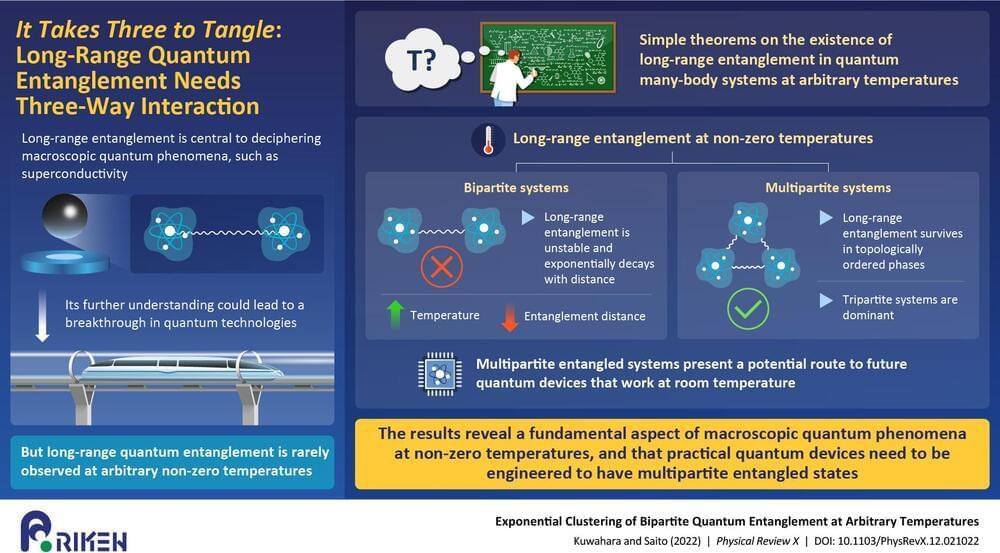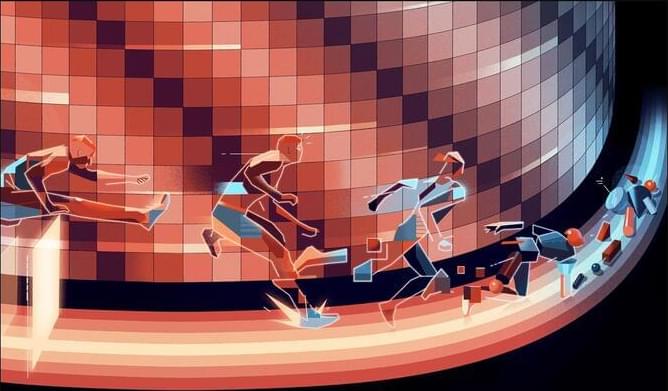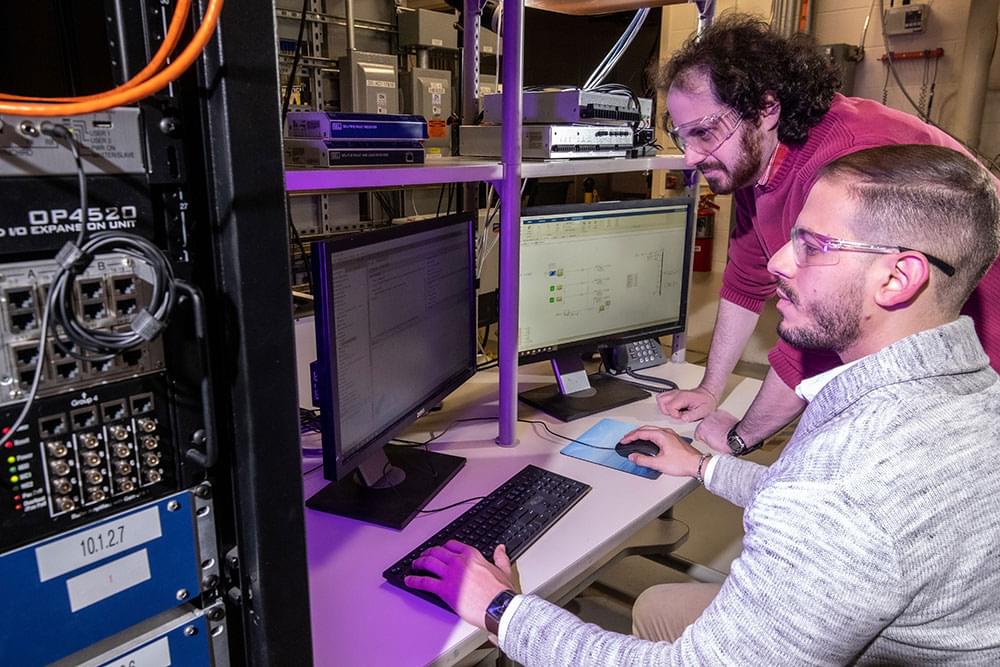May 6, 2022
It takes three to tangle: Long-range quantum entanglement needs three-way interaction
Posted by Saúl Morales Rodriguéz in categories: computing, quantum physics
A theoretical study shows that long-range entanglement can indeed survive at temperatures above absolute zero, if the correct conditions are met.
Quantum computing has been earmarked as the next revolutionary step in computing. However current systems are only practically stable at temperatures close to absolute zero. A new theorem from a Japanese research collaboration provides an understanding of what types of long-range quantum entanglement survive at non-zero temperatures, revealing a fundamental aspect of macroscopic quantum phenomena and guiding the way towards further understanding of quantum systems.
When things get small, right down to the scale of one-thousandth the width of a human hair, the laws of classical physics get replaced by those of quantum physics. The quantum world is weird and wonderful, and there is much about it that scientists have yet to understand. Large-scale or “macroscopic” quantum effects play a key role in extraordinary phenomena such as superconductivity, which is a potential game-changer in future energy transport, as well for the continued development of quantum computers.


















